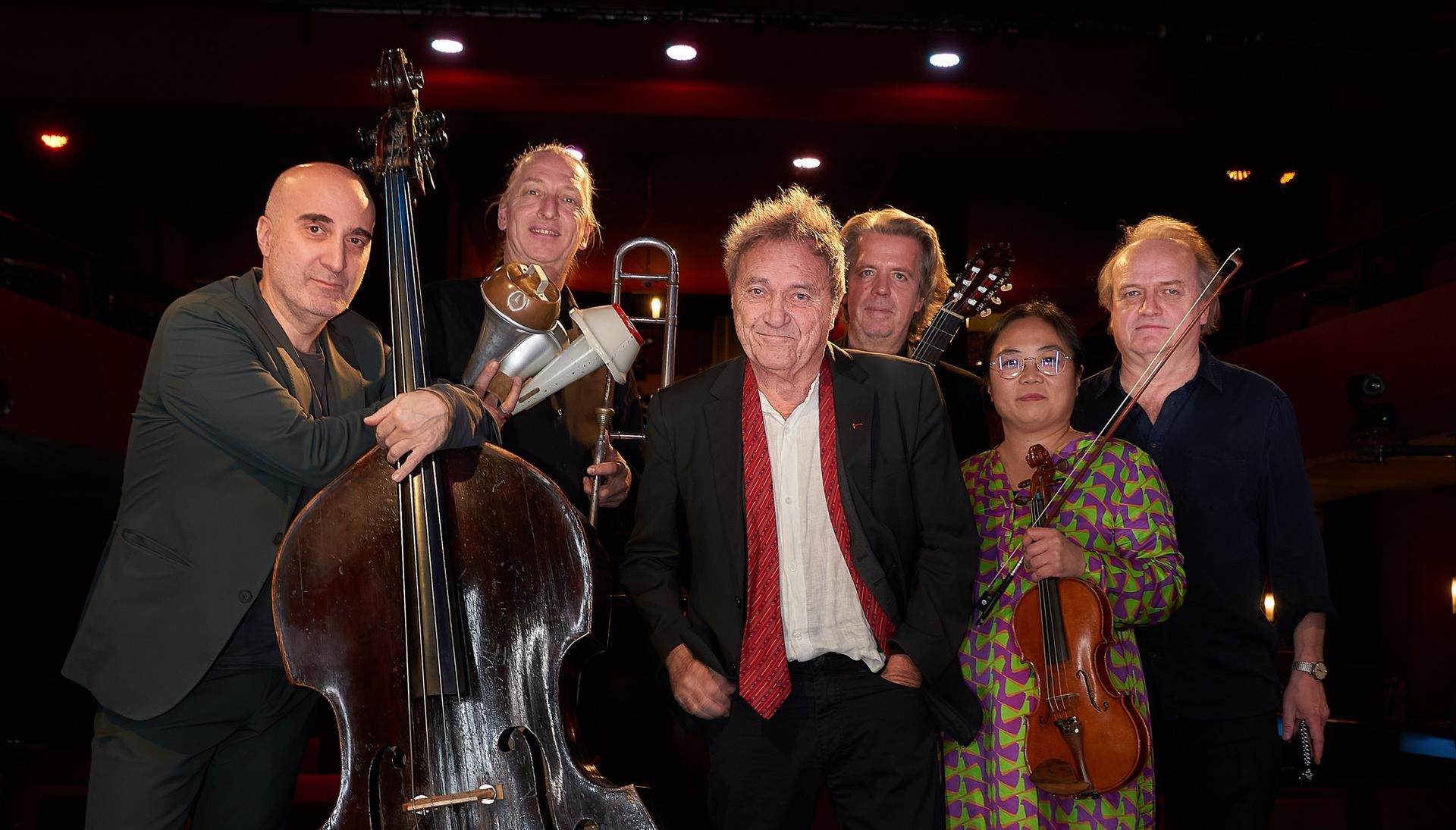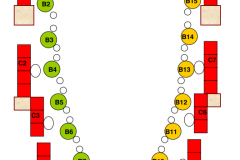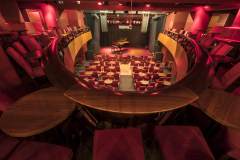Zur Eisernen Zeit, Wolfram Berger
December 2024 | ||||||
|---|---|---|---|---|---|---|
Mo | Tu | We | Th | Fr | Sa | Su |
Zur Eisernen Zeit feat. Wolfram Berger
The new concert program tells of the iridescent melting pot by the shimmering Danube, of born Viennese and newcomers, and of "real" music, however that may sound.
The songbooks of Franz Schubert, Hans Moser, Arnold Schönberg, and Joe Zawinul are played by musicians that can only be found in Vienna: Raised on Jimi Hendrix, Charlie Parker, Schrammel music, Musikantenstadl, white spritzers, and Schmalzbrot, they represent a style that can only be heard in this city.
Wolfram Berger, a native of Graz and trained Viennese, indulges his passion for play in the cosmos of different linguistic forms and sound imitations. From H.C. Artmann to Ernst Jandl, Konrad Bayer, and Friedrich Achleitner. With his joyful, unrestrained love affair with the microphone and his pleasure in interpreting, he adds his two cents to the adventurous music of the ensemble "Zur Eisernen Zeit." No eye or throat remains dry. (Press text)
Program and cast
Wolfram Berger: voice
Marcus Ratka: guitar
Weiping Lin: violin
Bertl Mayer: harp
Leonhard Paul: trombone
Alexander Lackner: bass
PORGY and BESS Jazzclub
Porgy & Bess (actually, Jazz and Music Club Porgy & Bess ) is a jazz club in the Riemergasse 11 in the 1st district of Vienna. The club , founded in 1993 is considered " the most important jazz organizer and trendy meeting point " of the Austrian capital .
The program of Porgy & Bess speaks to a very large audience , about 70,000 guests a year ; is accordingly Jazz " understood very pluralistic ," and the program " even in fringe areas , such as electronic music , contemporary music and world music penetrated . " Many international artists , particularly from the U.S. space , see also Austrian musician here an opportunity to perform . The club also offers the stage for events, such as the award of the Austrian World Music Award.
Musicologist Christian Scheib According to the Porgy & Bess " at the same time essential for the development of the musical ( jazz ) reality of a City" and needs and uses ' plain commonplace as urban space music. " It creates itself " through artistic preferences, acoustic quality , capacity and real capacity, the necessary exclusion of other clubs. " Here, the different areas of the jazz clubs allow - the area in front of the stage with tables, upstairs gallery , a lateral area with a bar at counter - different intense concentration on the concert scene . For Jazzthetik Porgy & Bess is even a " traditional club . "

 EN
EN DE
DE IT
IT FR
FR ES
ES RU
RU JP
JP RO
RO
 Seating plan
Seating plan 